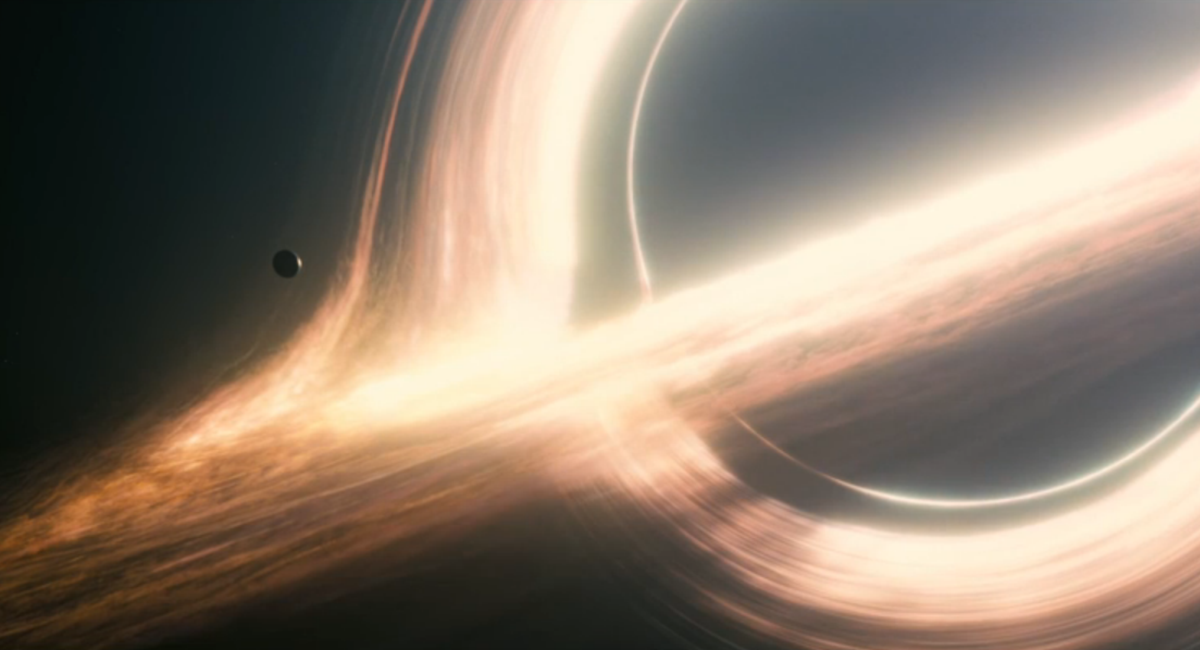By Jeremy Hannaford (The Cascade) – Email
Print Edition: November 12, 2014

Last year’s Gravity made space out to be an endless void of emptiness and terror, but Interstellar reignites the thrill of the space exploration genre. In Interstellar, space represents humanity’s next frontier; despite the indefinite isolation of space travel, the prospect of salvation drives the characters into the vastness of space to find a new, habitable planet after Earth can no longer sustain life.
One of the most distinct and admirable qualities of Interstellar is its determination to remind us of the “fiction” aspect of science fiction. Director Christopher Nolan creates multiple compelling worlds that are both otherworldly and reminiscent of our own planet. He weaves a narrative that extrapolates multitudes of scientific studies and theories, and combines them into a tale of humanity facing the great unknown.
Dylan Thomas’ poem “Do Not Go Gentle Into That Good Night” is a recurring motif throughout the film, representing the underlying theme of humanity’s unstoppable will to survive, even amongst the dust clouds and dying crops. But the constantly blowing dust is a reminder that their existence is limited. Humanity must be willing to make great sacrifices to save itself.
Nolan’s focal point of humanity is the relationship between Matthew McConaughey’s character Cooper and his daughter, Murph. Their bond is one of the most critical and well-executed parts of this film. Ironically, the sense of humanity has always been somewhat absent in Nolan’s previous films; however, McConaughey creates a character motivated by an unwavering emotional connection to his daughter. His development of Cooper is fantastic to watch as he is torn between his duty to humanity and his position as a father. As the mission wears on, Cooper encounters humanity’s will to survive again and again, and reflects on his own condition. His performance is real, unnerving, and a key element of what makes Interstellar so entertaining.
But, being a Nolan film, there are the usual drawbacks. It’s a film so heavily layered in science that exposition has to be present in almost every major conversation. This unfortunately results in plot devices taking precedence over character development. While McConaughey’s performance is a great step forward, the supporting cast is another step back. The A-list roster’s talent is never totally utilized, and is relegated to simply moving the plot along.
The two other major issues are the score and the editing. When they work, they do so marvelously and help build Nolan’s universe. But, when they don’t, it shows — arrogantly. Due to some downright lazy sound mixing, Hans Zimmer’s bombastic score buries dialogue in key moments. Also, there are times when the film’s length is noticeable. Most of the time, everything shown is compelling and feels warranted, but when certain scenes aren’t, they strain the audience’s connection with the constantly evolving narrative.
Although the film has its flaws, they don’t hinder the overall scope of Interstellar. The film’s exploration of the “unknown” is a welcome aspect that isn’t often explored in the film industry. Nolan and his brother Jonathan also collaborated with theoretical physicist Kip Thorne to create a narrative based strongly on science, which adds to the already-intriguing narrative.
Due to the grandiose scale, Interstellar isn’t without its faults. But its strengths push themselves to the very limits of imagination and wonder. Its astonishing visuals and cinematography write a love letter to the essence of space and the explorers of old. While Interstellar may not have the critical elements that would make it equal to 2001: A Space Odyssey, it holds enough to rightfully own a distinct spot in the history of science fiction films. It is not only an inspiring creation, but also an homage to 2001 and the other greats that came before.


